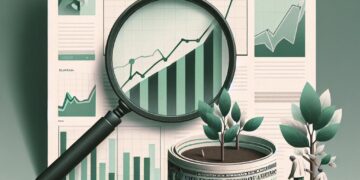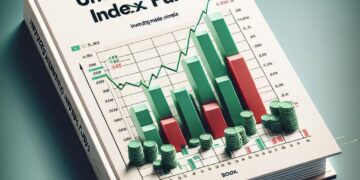Derivatives are financial instruments whose value is derived from an underlying asset. The underlying asset can be anything from stocks, bonds, commodities, currencies, or even other derivatives. Derivatives are used for various purposes, such as hedging, speculation, or arbitrage. There are various types of derivatives available, each with its own unique characteristics and applications. In this article, we will explore the different types of derivatives and their uses.
-
Futures Contracts
Futures contracts are a type of derivative that obligates the buyer to purchase an underlying asset at a predetermined price and date. Futures contracts are traded on exchanges and standardized in terms of contract size, delivery date, and quality of the underlying asset. Futures contracts are used by market participants to hedge against price risk or speculate on the future price movement of an underlying asset.
For example, a farmer may sell a futures contract on their crop to lock in a price and protect against price fluctuations. A speculator may buy a futures contract on gold, anticipating a rise in its price.
-
Options Contracts
Options contracts give the buyer the right, but not the obligation, to buy or sell an underlying asset at a predetermined price and date. There are two types of options contracts: call options and put options.
Call options give the buyer the right to buy an underlying asset at a predetermined price and date, while put options give the buyer the right to sell an underlying asset at a predetermined price and date. Options contracts are also standardized in terms of contract size, expiration date, and strike price.
Options contracts are used by market participants to hedge against price risk or speculate on the future price movement of an underlying asset. For example, a stock investor may buy a put option on a stock they own to protect against a potential price decline. A speculator may buy a call option on a stock, anticipating a rise in its price.
-
Swaps
Swaps are agreements between two parties to exchange cash flows based on different financial instruments or indices. There are various types of swaps, such as interest rate swaps, currency swaps, and commodity swaps.
Interest rate swaps involve exchanging fixed and floating rate interest payments on a notional amount of principal. Currency swaps involve exchanging cash flows denominated in different currencies. Commodity swaps involve exchanging cash flows based on the price of a commodity.
Swaps are used by market participants to manage interest rate, currency, or commodity price risk. For example, a company with a floating-rate debt may enter into an interest rate swap to fix their interest rate payments. A company with operations in different countries may enter into a currency swap to hedge against currency fluctuations.z
-
CFDs
Contracts for Difference (CFDs) are a type of derivative that allows traders to speculate on the price movement of an underlying asset without owning it. CFDs are traded on margin, which means traders can take positions larger than their account balance.
CFDs are used by traders to speculate on the price movement of various assets, such as stocks, indices, commodities, and currencies. For example, a trader may buy a CFD on a stock, anticipating a rise in its price. CFDs are also used for hedging purposes.
-
Warrants
Warrants are a type of derivative that gives the holder the right, but not the obligation, to buy an underlying asset at a predetermined price and date. Warrants are issued by companies and traded on exchanges.
Warrants are used by investors to speculate on the future price movement of a company’s stock or as a long-term investment. For example, a warrant holder may exercise their right to buy a company’s stock at a discounted price, anticipating a rise in its price.

-
Forwards
Forwards are similar to futures contracts, but they are not traded on exchanges and are not standardized. Forwards are customized agreements between two parties to buy or sell an underlying asset at a predetermined price and date. Forwards are typically used for hedging purposes or for transactions that involve non-standardized assets.
For example, a company may enter into a forward contract to buy a commodity at a future date to protect against price fluctuations. A farmer may enter into a forward contract with a buyer to sell their crop at a predetermined price and date.
-
Credit Derivatives
Credit derivatives are a type of derivative that allows market participants to transfer or manage credit risk. Credit risk is the risk that a borrower may default on their debt obligations. Credit derivatives are used by banks, insurance companies, and other financial institutions to manage their credit exposure.
There are various types of credit derivatives, such as credit default swaps (CDS), credit linked notes (CLN), and collateralized debt obligations (CDO). Credit default swaps allow market participants to transfer the credit risk of a borrower to another party. Credit linked notes are debt securities that have a credit derivative component. Collateralized debt obligations are complex securities that are backed by a portfolio of debt securities.
-
Structured Products
Structured products are a type of derivative that combines one or more financial instruments into a single security. Structured products are designed to meet the specific needs of investors, such as risk appetite, return objectives, and investment horizons. Structured products can be based on various underlying assets, such as stocks, bonds, currencies, or commodities.
For example, a structured product may combine a bond with a call option on a stock index. The investor will receive a fixed income from the bond and a potential return from the call option if the stock index rises above a certain level. Structured products are used by investors to achieve a specific investment objective, such as income generation or capital protection.

-
Exchange-Traded Notes
Exchange-traded notes (ETNs) are a type of derivative that tracks the performance of an underlying index or asset. ETNs are debt instruments issued by banks and traded on exchanges. ETNs are designed to provide investors with exposure to various asset classes, such as stocks, bonds, commodities, or currencies.
ETNs are similar to exchange-traded funds (ETFs), but they have some key differences. ETNs are debt instruments, while ETFs are equity instruments. ETNs also have credit risk associated with the issuer, while ETFs do not. ETNs are used by investors to gain exposure to various asset classes, without the need for direct investment in the underlying assets.
-
Binary Options
Binary options are a type of option contract that has a fixed payout if the underlying asset meets certain conditions. Binary options have two possible outcomes, either a fixed amount of money or nothing at all. Binary options are used by traders to speculate on the price movement of an underlying asset, but they are also associated with high risk and high reward.
For example, a binary option may have a payout of $100 if the price of gold rises above a certain level within a specified time frame. If the price of gold does not reach that level, the option expires worthless.
conclusion
derivatives are a crucial part of the financial markets, providing market participants with various tools to manage risk, speculate on price movements, or achieve investment objectives. Futures contracts, options contracts, swaps, CFDs, warrants, forwards, credit derivatives, structured products, exchange-traded notes, and binary options are some of the most commonly used derivatives














